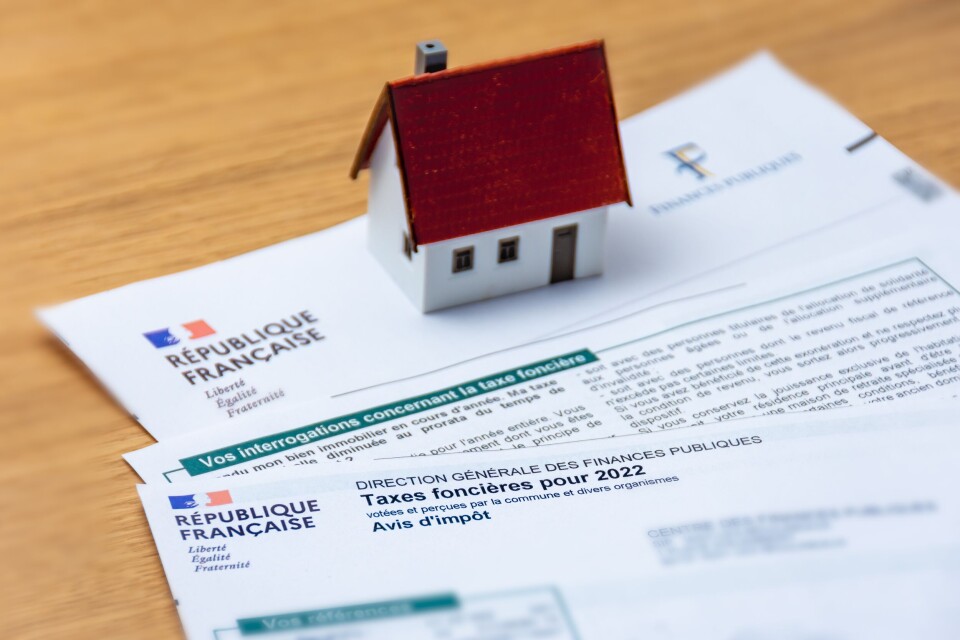-
French banks applying ‘irregular’ charges on clients, fraud office check reveals
The investigation into 100 banking establishments found breaches, failings, and alleged criminal practices
-
Ryanair threatens to reduce flights in France as tax increases back on agenda
‘France is going against the tide’, said Ryanair’s CEO
-
Why employees in France are likely to receive less money in January
Three changes are expected to make a dent in the usual level of net pay
Exemptions and reductions extended for the taxe foncière in France
A new law makes it easier for older people and certain other groups of people to benefit from these in relation to this property owner's tax

It is now easier for certain groups of homeowners to get an exemption or deduction on their taxe foncière (property owner’s tax).
The conditions for receiving an exemption have been relaxed for older or disabled people as well as those receiving certain benefits in 2023.
This will be welcome news to those affected as the taxe foncière is set to rise by at least 7% this year in all areas (unless local councils opt to lower their tax rates to compensate).
Read also: Taxe foncière France’s local property tax: Who pays and the exemptions
Extension of the €100 reduction
People who were aged 65 to 74 on January 1, 2023 and have a low income can receive a €100 reduction on taxe foncière on their main home.
Previously, to receive the exemption, the person had to live alone or with their spouse or civil partner, or with dependents, or with people benefitting from the Aspa (pension top-up) or Asi (disability) benefits, or other people on low incomes.
Now this condition has been removed, so they can benefit even if, for example, they live with another working adult such as an adult child whose own income is above the ‘low income’ thresholds.
Low income, in this case, relates to the revenu fiscal de référence (net taxable income) as shown on last year’s income tax statement for the declaration of 2021 income.
For a single person this is up to €11,885 and then the ceiling rises by €3,174 for each half ‘part’ of the family quotient (a calculation of family size used for taxes). For example, for a couple without dependents it is €18,232 (more categories can be found at this link).
Read also: All owners of French properties must fill in this new tax-site form
More older people are now exempt
People who were aged 75 or more on January 1, 2023 and have low incomes are exempt from taxe foncière on their main homes.
This is now true regardless of who they live with. Previously the same conditions applied as for the reduction described above.
Exemption extension for certain benefit recipients
People who receive Aspa or ASI, as well as those who have allocation aux adultes handicapés (AAH) and who have low incomes are exempt.
This exemption is also no longer subject to rules on whom the person lives with.
Relief for taxpayers in retirement homes
Low-income taxpayers who move permanently to a retirement home or health care facility can benefit from an exemption or a reduction in property tax for their former main home if they retain the use or ownership of it.
This used to require them to leave it empty and they could not even allow relatives to live in it free of charge, other than a spouse or civil partner or dependents who were living in it already when they moved to the retirement home.
Now this requirement is removed, so, for example, other relatives could use it if they wish.
No taxe d’habitation on former homes for people in retirement homes
People who moved to retirement homes used to have an exemption from taxe d’habitation on their former main homes if they kept the use of them and on condition that no one used them apart from their spouse, civil partner or dependents who were living in the property when they moved to the retirement home.
As with the section above, this condition has been removed, so they can let other people live in the property if they wish, as long as they still retain the right to use it.
Read also: Is a French Pacs valid in the UK?
Related articles
French taxe foncière exemption for eco-renovations: how does it work?
Taxe foncière, taxe d’habitation: how are these worked out in France?
Where has taxe foncière increased the most in France in 2022?
























